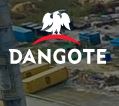 The start of the Dangote refinery in January 2024 will not only make Nigeria self-sufficient in refined products but also make it a net exporter of refined products once the refinery reaches full production capacity, according to Drewry.
The start of the Dangote refinery in January 2024 will not only make Nigeria self-sufficient in refined products but also make it a net exporter of refined products once the refinery reaches full production capacity, according to Drewry.
While a contraction in Nigeria’s imports will curb global refined products trade, a likely increase in the country’s exports will alter the trade patterns in the refined products market.
Currently, the refinery is operating at only half its capacity, but it has started producing the full range of products, including gasoline, from September. With the acceleration in refinery runs, imports of refined products will eventually come to a grinding halt, and the country will become a net exporter of diesel and jet fuel.
According to Drewry’s estimates, at 85% of capacity utilisation and its residue fluid catalytic cracking unit running at full throttle, the Dangote refinery will wipe out around 270 kbpd of gasoline and about 100 kbpd of middle distillate from Nigerian imports. As the country imports the majority of gasoline from Europe and most of its diesel and jet fuel from the Middle East and India, a halt in these imports will squeeze product tanker demand equivalent to 28-30 LR1s.
While Dangote's capacity to produce middle distillate is significantly higher than Nigeria’s consumption, the refinery will have an exportable surplus of diesel and jet fuel of 150 kbpd. Given the refinery’s adherence to Euro-standard Sulphur content, it is set to reshape diesel supply routes across the Atlantic.
As Europe is one of the major importers of diesel and jet fuel, Nigeria’s surplus of middle distillate is likely to move to Europe at the expense of Middle Eastern and Asian cargo. While the cost of transportation of Asian and Middle Eastern middle distillate to Europe has increased because of the Red Sea crisis, Nigerian diesel and jet fuel will be attractive for European buyers, provided it meets Euro 5 fuel standards.
If Nigerian diesel fails to meet Euro 5 fuel standards, it will have to compete with Middle Eastern diesel for the Asian market. If Nigerian diesel exports to Asia increase at the expense of Middle Eastern cargo, it will boost product tanker demand equivalent to eight LR1 tankers.
In the second scenario, when surplus diesel from Nigeria moves to Asia, the overall decline in the product tanker market will be slightly lower at 22 LR1 equivalent.



